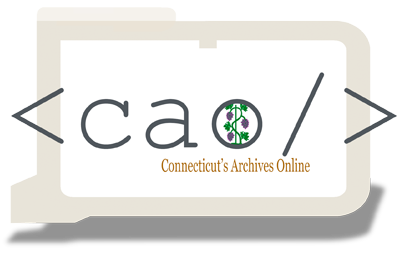Collections : [Yale University -Manuscripts and Archives]

Yale University -Manuscripts and Archives
Sterling Memorial Library
Yale Campus
New Haven, CT
 Connecticut's Archives Online
Connecticut's Archives Online
One-click access to Connecticut's archival resources
